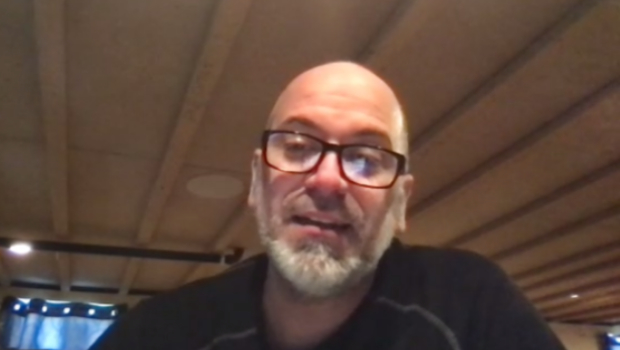Scott Minnick, a middle school world language teacher in Glastonbury, recalls a stunning recommendation from one Glastonbury town councilor: cut education budgets at every opportunity. The rationale? Boards of education always manage to make things work, saving the town millions of dollars.
“That really struck me,” Minnick said, “because I’m asking myself, ‘What has been lost by not giving that money to education?’ That goes to the crux of what this coalition is trying to do, which is to not have that happen.”
Minnick was one of several participants in a virtual town hall meeting with Representative Jill Barry, who represents Glastonbury. The meeting was hosted by Recovery for All, a coalition of more than 50 civic, faith-based, and labor groups, including CEA, whose mission is to build an economy that works for everyone in Connecticut.
“I definitely see the battles we have had funding education,” Barry acknowledged, “and yes, the boards of education always make it work—but what is lost? I definitely see the local strain.”
“And Glastonbury has it good compared to other towns,” Minnick added—a sentiment echoed by town hall participant Candice Maningas, whose two young children attend Glastonbury schools.
Maningas described how grateful she was that her children, who have been learning remotely for the past year, have had all the support and resources they need.
“But I can’t stop thinking about the kids who don’t,” she said. “I don’t believe it’s fair. I am happy to pay my fair share, and pay more, if it means those kids in other areas of the state have the same resources my kids do. When I look at this idea that we’d be asking the wealthy—of which I consider myself a part—to pay more, I’ve looked at it as trying to tip the scales back toward fairness. We’re not asking you to do more because we want you to carry a heavier load; we’re recognizing that it’s been unfair until this point. We’re asking people to right this ship.”
Maningas, who is a nurse, said she has also seen firsthand the healthcare inequities in this state, made worse by the pandemic.
“I’ve seen it my entire career, and it’s always been difficult for me to witness; I can tell you that with COVID it’s been far worse, and it’s hard to watch. For me, when it comes to education and healthcare, these are two areas where I’ve had a front row seat to how unfair and how inequitable things have been over the past year. We say we believe in an economy that works for everybody. If we believe that, we have to walk that walk.”
Recovery for All town hall meetings are designed to give legislators an opportunity to hear directly from constituents in their districts about the tremendous need that exists in communities around the state and how their legislative actions can address those needs. The April 7 meeting was aimed at urging Rep. Barry to vote in favor of two bills in the Finance Committee—HB 6187 and SB 821—that would provide emergency relief to working families and create an equitable, stable revenue stream to fund public education as well as housing, transportation, environmental protection, social services, and other critical programs.
“Now is the moment to make dramatic investments in these programs and services,” says CEA President Jeff Leake. “Our current tax structure perpetuates and fuels systemic inequities, and we need to ask ourselves what kind of recovery we’re going to have in Connecticut: a recovery for a few, or a recovery for all?”
Ally Sexton, representing AFT Connecticut at the town hall meeting, noted, “Students have lost so much over the last year, and they are going to need a lot of support—more paraprofessionals, more teachers. And state government should provide a social safety net. As it stands, town councils and boards of education are fighting for scraps.”
While she had not yet reviewed or committed to the proposals before the Finance Committee, Barry said, “We must find the best way to fund education through the state so that all kids have equal opportunities.”
“We are facing historic needs and disparities,” Connecticut AFL-CIO’s Jennifer Berigan reminded her. “We can’t use federal funds to plug state budget holes. We’ll never get to equity with an austerity budget.”
Recovery for All is an energetic group of Connecticut residents and leaders, including teachers, who welcome your voice and experience. Meet other likeminded educators and activists and become part of this grassroots effort to bring about positive change for our students, families, and communities.
Register to join the next CEA Recovery for All statewide meeting on April 26.







